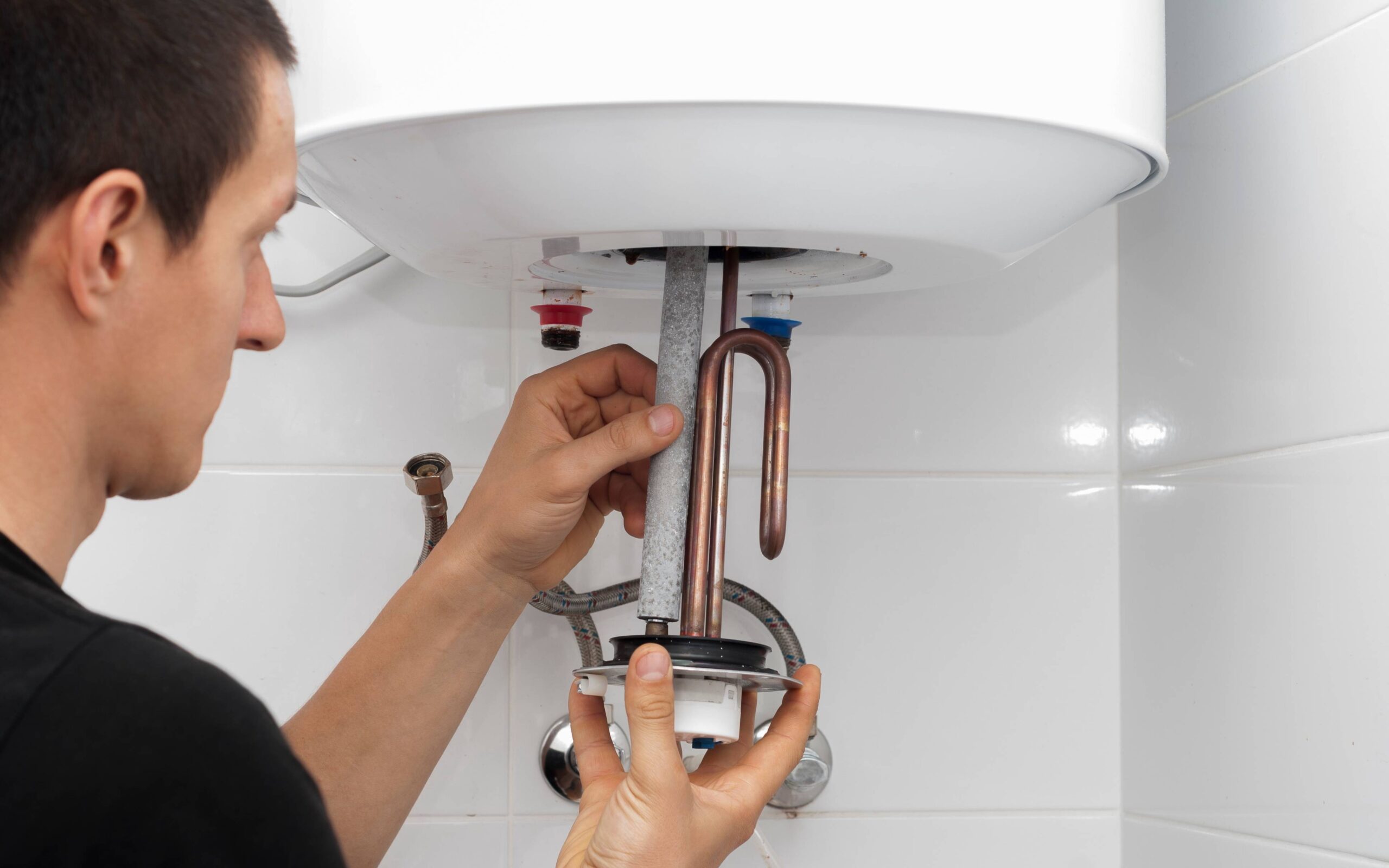How to Save Money on Water Heater Replacement
Updated: Apr 25, 2025
Replacing a water heater can be expensive, but there are ways to reduce costs without sacrificing quality. By choosing the right type of water heater, exploring rebates, and considering energy-efficient options, homeowners can make the most of their investment while keeping expenses under control.

Signs That Your Water Heater Needs to Be Replaced
Before spending money on a replacement, it is important to determine whether the existing water heater truly needs to be replaced. Some issues, such as minor leaks or heating problems, can sometimes be fixed with a simple repair. However, certain signs indicate that replacement is the best option.
Water heaters typically last between 8 and 15 years, depending on the type and maintenance history. If the unit is over a decade old and frequently needs repairs, replacing it may be more cost-effective than continuing to fix it. Other warning signs include inconsistent water temperatures, rust-colored water, strange noises from the tank, and visible leaks. If the water heater is no longer producing enough hot water for household needs, it may be time for an upgrade. More information on when to replace a water heater can be found on the U.S. Department of Energy’s website at energy.gov.
Choosing the Right Water Heater to Save Money
One of the best ways to save money on a water heater replacement is to choose the right type of unit. There are several options available, each with different upfront costs and long-term savings potential.
Traditional storage tank water heaters are the most common type, storing a set amount of hot water that is used throughout the day. These are usually the most affordable to purchase and install, but they tend to use more energy because they keep water heated at all times. Tankless water heaters, also known as on-demand water heaters, only heat water when it is needed. While these models have a higher initial cost, they are significantly more energy-efficient, leading to lower utility bills over time. More details on the benefits of tankless water heaters can be found at energystar.gov.
For households looking for the most energy-efficient option, heat pump water heaters (also called hybrid water heaters) use less electricity by transferring heat from the surrounding air to warm the water. These units can be more expensive upfront but often qualify for rebates and can cut energy costs by up to 60 percent.
Taking Advantage of Rebates and Tax Credits
Government programs and utility companies often offer rebates or tax credits to encourage homeowners to choose energy-efficient water heaters. The Inflation Reduction Act of 2022 provides federal tax credits for qualifying energy-efficient appliances, including water heaters. Some homeowners may be eligible for up to $600 in tax credits for purchasing an Energy Star-certified water heater. More information on federal energy efficiency incentives can be found at energystar.gov.
Many local utility companies also offer rebates for upgrading to energy-efficient models. Some rebates can be as high as $1,000, depending on the location and type of water heater being installed. Checking with local energy providers or using the rebate finder tool at dsireusa.org can help identify available savings.
Comparing Installation Costs and Getting Multiple Quotes
The cost of replacing a water heater varies based on factors such as the type of unit, labor rates, and installation complexity. On average, homeowners spend between $800 and $3,500 on water heater replacement, including installation. To save money, it is important to compare quotes from multiple plumbing companies and contractors.
Some big-box retailers, such as Home Depot and Lowe’s, offer installation services that may be more affordable than hiring an independent plumber. However, it is still a good idea to get at least three estimates before making a decision. Some plumbing companies also offer discounts for first-time customers or seasonal promotions on water heater installations. Websites like angi.com and homeadvisor.com can help find reputable contractors and compare pricing.
Considering DIY Installation for Additional Savings
For those who are comfortable with home improvement projects, installing a water heater without professional help can save several hundred dollars. However, this option is only recommended for homeowners who have experience with plumbing and electrical work.
Before attempting a DIY installation, it is important to check local building codes and permit requirements. Some cities require a licensed professional to install water heaters, especially if gas lines or major electrical work are involved. Safety is also a major concern, as improper installation can lead to gas leaks, water damage, or even explosions. The U.S. Consumer Product Safety Commission provides guidelines on safe water heater installation at cpsc.gov.
Maximizing Efficiency to Reduce Long-Term Costs
Once a new water heater is installed, homeowners can take steps to reduce energy use and extend the lifespan of the unit. Lowering the water heater’s temperature to 120 degrees Fahrenheit instead of the default 140 degrees can reduce energy consumption by up to 10 percent. Installing a water heater blanket on traditional storage tank models can help retain heat and prevent energy waste.
Regular maintenance is essential for keeping a water heater running efficiently. Flushing the tank once a year removes sediment buildup, which can improve efficiency and extend the life of the unit. Checking and replacing the anode rod every few years helps prevent rust and corrosion, reducing the likelihood of leaks. The Department of Energy provides maintenance tips for improving water heater efficiency at energy.gov.
Final Thoughts
Replacing a water heater can be a costly project, but choosing the right model, exploring rebates, and comparing installation quotes can significantly reduce expenses. Energy-efficient options like tankless or heat pump water heaters may have a higher upfront cost but offer long-term savings through lower energy bills. Taking advantage of tax credits, performing regular maintenance, and adjusting temperature settings can further maximize savings. Whether hiring a professional or considering a DIY installation, careful planning can make water heater replacement more affordable while ensuring a reliable supply of hot water.

